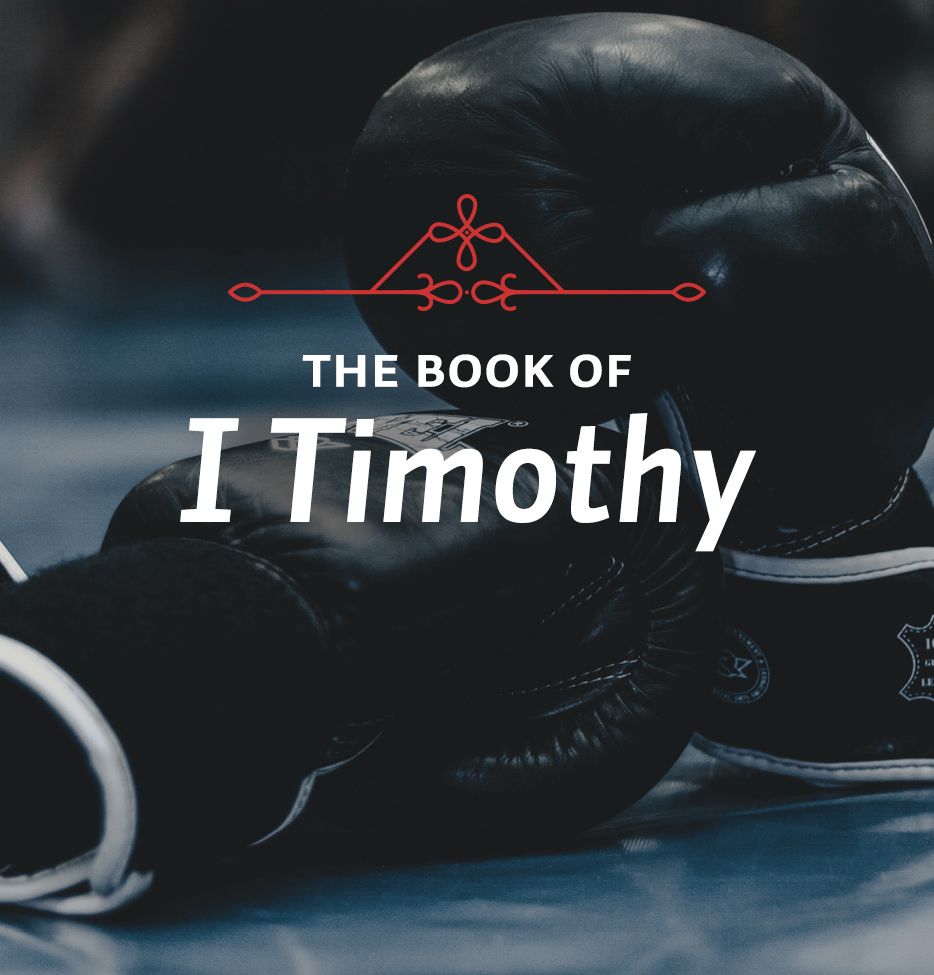Theme: Doctrine and Life
In this week’s lessons, we see that godliness, rooted in a thorough understanding of biblical doctrine, is necessary for the Christian life.
Scripture: 1 Timothy 4:7-8
It’s important to notice that as Paul writes, he is talking about teaching. When he’s talking about godliness, he’s not putting Christian experience over against teaching, as if now suddenly we’re going to live by experience and not by the Word of God. Paul has already told Timothy to stand fast on and uphold sound doctrine. Make sure Jesus Christ is at the center of your faith because he is the only mediator on our behalf before God. Paul who began that way is not suddenly shifting gears and saying that now his emphasis is on experience. Rather, what he means is that any balanced Christian life is going to have teaching and experience going together. Doctrine and life must belong together because the life is going to be determined by the doctrine.
I think you even have that in the construction of this book. You can explain doctrine and godliness as two focal points. The two are tied together and will inevitably influence one another. Consequently, Paul wants us to feed upon the doctrine in order that we might know what God is like and begin to live like him. The one who does that has really understood the doctrine.
This is what John Calvin saw so clearly in the Institutes of the Christian Religion. Calvin is concerned to show that a true knowledge of God will inevitably express itself in a godly life. I think this is even seen in Calvin’s title. He called it the Institutes of the Christian Religion and not Institutes of Christian Theology. Yes, there is much theology in it, but it is not merely an intellectual or academic study of the knowledge of God. Calvin gave it the title he did because by referring to the Christian religion he meant Christian piety or godliness. Calvin’s point is simply that the knowledge of God will inevitably affect how we see ourselves and how we live.
Calvin’s Institutes is divided into four books: The Knowledge of God the Creator; The Knowledge of God the Redeemer in Christ; The Way in Which We Receive the Grace of Christ; and The External Means or Aids by Which God Invites Us into the Society of Christ and Holds Us Therein (which is Calvin’s doctrine of the church). So many times when we think of knowledge, we think in abstract terms, and we have to get over that in Christianity. Of course, we have to begin with the intellect because doctrine is first grasped with the mind, and as our knowledge of doctrine grows we see that the doctrines of the Bible fit together. But from there, doctrine goes on to take a hold of us, and we begin to grow not simply in knowledge but in godliness.
Now as Calvin develops this idea of knowledge, he stresses different kinds. First, he says there is a knowledge that is nothing more than awareness. You know something of a given subject, but you don’t know very much at all. It is basically a simple awareness that it exists. Calvin points out that all men and women have this kind of knowledge of God. They’re aware that God exists. It’s what Paul talks about in Romans 1. Calvin calls this, not cogito Dei, which refers to the knowledge of God in a cognitive sense, but notitia Dei, an awareness of God’s existence but without any personal contact with him whatsoever.
There’s a second kind of knowledge that goes a little bit further than this, and it’s the knowledge that comes by experience. A person with this kind of knowledge would recognize not only that God is out there somewhere in some abstract way, but somehow that this God has a bearing upon us, especially seen in those deep moments of life when we sense our utter dependence upon God. This knowledge is obviously more than mere awareness, and it does entail, at least at times, a thorough knowledge of God. This is the kind of knowledge that theologians have who are not genuinely born again. They know much about God, but it only goes so far in their lives.
But as good as it is to have this second kind of knowledge, and Christians should be concerned to learn as much about the Bible and what it teaches about the knowledge of God as they can, Calvin says even this kind of knowledge is not enough to prevail in the Christian religion. The kind of knowledge we’re to have is the sort that brings us into contact with God so we come to recognize the significance that the existence and nature of this God has upon ourselves. And so as Calvin points out so clearly and in classic language, “To know God in his holiness is to know ourselves and our sin. To know God in his sovereignty is to know ourselves in weakness as his creatures,” and so on with all the other attributes of God. That kind of knowledge turns us from our sin to God and to his grace as that is manifested to us in the Lord Jesus Christ. And it is as we begin to learn these things that we begin to become like him. This is what Paul has in mind.
Study Questions:
Why does Paul put so much emphasis on teaching?
Why is it necessary for a balanced Christian life to be marked by both doctrine and life? What happens if you think you can have one without the other?
Describe the three kinds of knowledge Calvin writes about in the Institutes of the Christian Religion.
Application: Is your life marked by both doctrine and life, or do you tend to elevate one over another? If so, how can your Christian life be brought into better balance?






